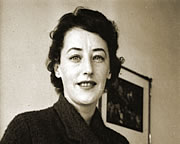 'The resilience of kids astounds me constantly. They are so brave. They're so loyal. More loyal to parents than parents are to them, let me tell you.' So says Barbara Holborow, a battling champion for Australia's disadvantaged kids.
'The resilience of kids astounds me constantly. They are so brave. They're so loyal. More loyal to parents than parents are to them, let me tell you.' So says Barbara Holborow, a battling champion for Australia's disadvantaged kids.
By Geraldine Royds
There's not a lot Barbara Holborow hasn't seen when it comes to young criminals and abused kids. As magistrate in the Children’s Court in Sydney, Australia, her compassion and outspokenness were legendary. Although her days as a magistrate are over, her passion for children in need is as strong as ever.
Her reaction to the squalid stories she heard in court spurred her into reforming a system that she believed didn't help young people in trouble. During her twelveyears as a magistrate in the Children’s Court, she set up a care court where matters of neglect, rather than criminality, were heard. She created the first free legal aid service for children, she let TV cameras into her court and she supported the creation of a special jail for first-time offenders.Her fearless crusading brought her national attention, and the opposition of many in the legal establishment.
'What is in the best interests of the child? This is the catchword. And then they go off and do something else that's not at least in the best interests of the child,' she remarks.
Barbara married young.
Her first child
died soon after birth from diabetes-related complications (Barbara had
been diagnosed as diabetic at the age of thirteen) and although she later gave
birth to a healthy girl, the death of her first child reverberated throughout
her life. Not long after Louise's birth, Barbara split with her husband, found
a job as a legal secretary and resumed her studies. She was thirty nine when
she finally qualified as a solicitor, opened her own practice and decided to specialise in children’s
cases.
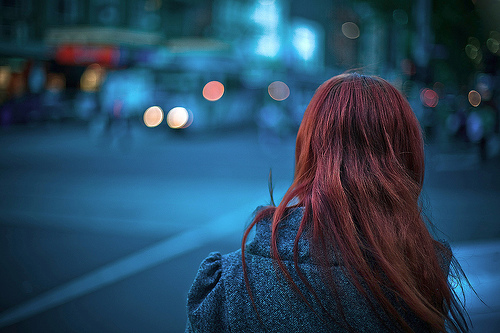 Although it was very unusual
then for lawyers to be admitted as magistrates, Barbara was invited to apply by
a high court judge. She only accepted the job because she saw it as an opportunity
to create a care court and to work on the
side of the kids.
Although it was very unusual
then for lawyers to be admitted as magistrates, Barbara was invited to apply by
a high court judge. She only accepted the job because she saw it as an opportunity
to create a care court and to work on the
side of the kids.
Through her work at a women's refuge she met Jacob, a young Aboriginal boy. When he was abandoned by his mother, Barbara took him in. Many other foster children followed.
Her commitment to the welfare and rights of children has continued since her retirement
from the bench in 1994 and she has written three best-selling books;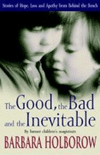 Those
Tracks on My Face, Kids: Loving
for Life and The Good, the Bad and the Inevitable.
Those
Tracks on My Face, Kids: Loving
for Life and The Good, the Bad and the Inevitable.
Barbara's motto is that everyone in a community has responsibility for every child and that kids deserve a helping hand from anyone willing to reach out. She is frustrated that kids ever get to the stage where they are selling themselves on the street or setting fire to property. She believes that parents need to be more responsible for the actions of their kids even though some are ridiculously ill-equipped to deal with their offspring and that the support of the community is one of the greatest things that can help us through our lives.
'If you don't have strong families, you don't have strong communities - if you don't have strong communities, you don't have a strong Australia. Politicians say children are our future [but] children are now,' she says.
In 2000, Barbara Holborow was interviewed for the Australian Biography project:
But after you decided you didn't like family law, you nevertheless found that working with children was really, really satisfying for you. Can you tell me why?
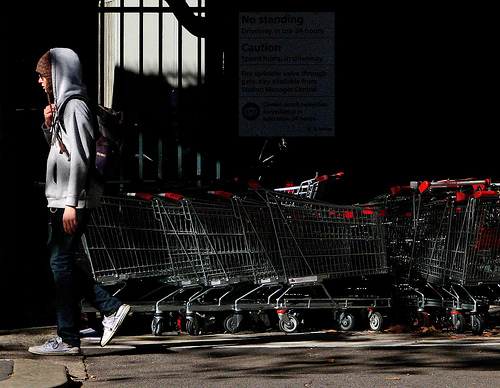 The resilience of kids astounded me constantly. They're so
brave. They're so loyal. More loyal to parents than parents are to them, let me
tell you. They never dob their parents in. Parents can't dob them in fast
enough, by saying, 'You know, I never knew he was doing this, I've done
everything that I could ever do for him in my life, look how he repays me by
doing this.' They've got a great sense of humour.
The resilience of kids astounded me constantly. They're so
brave. They're so loyal. More loyal to parents than parents are to them, let me
tell you. They never dob their parents in. Parents can't dob them in fast
enough, by saying, 'You know, I never knew he was doing this, I've done
everything that I could ever do for him in my life, look how he repays me by
doing this.' They've got a great sense of humour.
And they bounce back. They really - and they don't hate you, they don't hate you when you've got to be firm with them and when, as a magistrate they'd have to go inside. They knew it. They knew they'd had every chance. And I, I remember going to Kariong which is very tight security and lots of buzzers and everything else, and all this electronic nonsense, and going in. And all these kids that were there that at some stage had come through my court. I hadn't sent them all there, but they'd call out 'G'day, Barb.' And it just made me feel good. I know I made one other juvenile magistrate very angry that I allowed children to call me Barb, but that was amongst the nice things they called me. They called me a lot of things that weren't that nice.
What had made you decide that you should become a magistrate, that you should apply for this position?
Only that if it had been a magistrate in the Local Court I wouldn't have applied. This - to be magistrate in a Children's Court, I could bring about change. Oh, gosh. I would get my Care Court separate from the Criminal Court, I would talk to kids, I would talk to parents. I would never, ever send a kid to a detention centre unless I had a full report, school report, family report.
What was it about you that made you think that you were going to be so different from the others?
Because I was dedicated. Absolutely and totally. I live a very ordinary life where really my work with kids has been top priority. I've never remarried. My social life it's - I've got very close friends, but that's it. And so I was able to dedicate myself to my work. And I did.
Did you feel that your experience as a mother and as a foster mother was useful to you?
I thought that my experience as an only child who'd been loved almost to death, a married woman who'd gone through the loss of their child, a mother, a working mother, a woman who was divorced. You name it. I'd had everything that life could throw at you. A diabetic. Octogenarian parents that were sending me loopy trying to care for them and visit them. Yeah, I'd had all of that.
So you felt the care work was much more important (than the Criminal Court)?
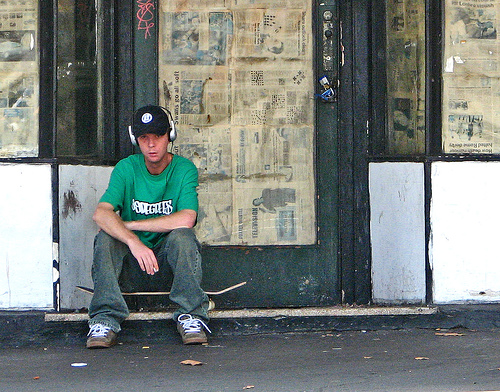 Absolutely. Absolutely because there's no book anywhere, there
are no laws anywhere defining what you should
do
with a child who is neglected. In crime I can look up, you get six months, you
get nine months, you get nothing, you get probation. But that's not there in
the
Care Court and that's
where it needed someone to investigate, to research, that's what I wanted to
do. I wanted to set up a court where we could research and become some
authority on post-natal depression, schizophrenic mums. Could heroin addicted
mums ever be good mums? Could a prostitute be a good mum? I wanted to do all of
this because these were matters that came before me every day.
Absolutely. Absolutely because there's no book anywhere, there
are no laws anywhere defining what you should
do
with a child who is neglected. In crime I can look up, you get six months, you
get nine months, you get nothing, you get probation. But that's not there in
the
Care Court and that's
where it needed someone to investigate, to research, that's what I wanted to
do. I wanted to set up a court where we could research and become some
authority on post-natal depression, schizophrenic mums. Could heroin addicted
mums ever be good mums? Could a prostitute be a good mum? I wanted to do all of
this because these were matters that came before me every day.
How did you meet Jacob (who you fostered in 1975)?
Jacob's mother was in Elsie's Women's Refuge, the first women's refuge in Australia. I used to do free legal aid for these ladies - to get them maintenance maybe, to have custody of their children. They used to come down to give me instructions. And they started to bring down this Aboriginal child. And the very first time that this woman brought him in, he put his arms out to me - he put his arms around my neck, and his feet around my rib-cage. And I took instructions holding him like this and writing. I called him my little koala. He was nine, ten months old. And he was mute through neglect. He didn't utter a sound - hadn't been out of a cot. And so anyway they came down this day and they said, 'Well, give your koala a goodbye, because his mum's going into rehab, and his two brothers and sister are going down to Bomaderry, but he's too young. They can't take him.' And I said, 'Well how long will that be?' And they said, 'Six weeks.' And I said, 'Oh, I'll take him for six weeks, that's nothing.' And that was twenty-six years ago.
If you had to just offer one piece of strong advice to parents about the rearing of their children, what would it be?
There isn't one. It's taken for granted that you're going to love them. You can take it for granted they're going to love you, but I don't believe they can take it for granted that you're going to love them. Love them, and not only listen, but hear what it is they're saying to you. They say so much but you don't hear it because you're really not listening.
This is an edited transcript. The full interview and video is available at the Australian Biography project.
